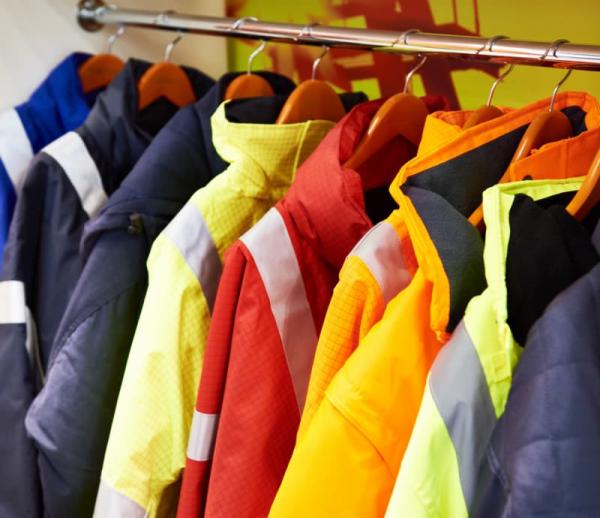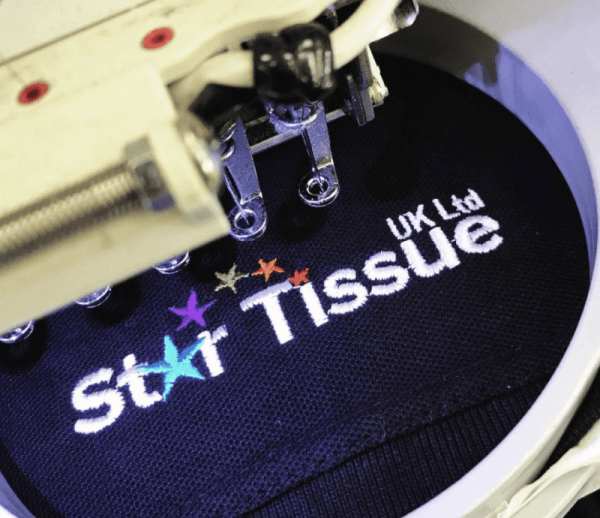Heat-related illnesses and prevention
During the summer months, the risk of heat-related illnesses such as heat exhaustion and heat stroke increases significantly. Outdoor worksites, especially those with physical labour involved, pose a higher risk due to prolonged exposure to high temperatures.
To prevent heat-related illnesses, it’s crucial to make sure you’ve implemented a range of measures, including providing adequate hydration, encouraging breaks in shaded areas, and promoting lightweight and breathable clothing. You’ll also need to ensure that workers have easy access to plenty of cool water throughout the day (whatever the weather) and schedule regular breaks in shaded or cooler areas to allow your team to rest and recover.
What’s more, promoting the use of lightweight, moisture-wicking workwear can help keep workers cool and comfortable, reducing the risk of heat-related illnesses. On that note, we’ve got no shortage of T-shirts to choose from here at City Workwear!
Sun exposure and skin protection
Prolonged exposure to the sun's ultraviolet (UV) rays can lead to sunburn, premature ageing of the skin, and an increased risk of skin cancer. Anyone who spends extended periods outdoors are particularly vulnerable, such as labourers or logistics teams. To protect your staff from sun exposure, make sure to encourage the use of sunscreen with SPF 30 or higher and ensure it is applied regularly, especially on exposed skin.
Providing wide-brimmed hats and sunglasses that block both UVA and UVB rays can also help shield workers from harmful UV radiation. And of course, don’t forget to make sure everyone is fully briefed on the dangers of UV radiation, and encouraging everyone to take proactive measures, such as seeking shade during peak sunlight hours, as it can significantly reduce the risk of sun-related health issues.
Dehydration and its effects
In hot weather, the risk of dehydration increases significantly, especially for anyone engaged in physical labour. Dehydration can lead to fatigue, dizziness, and in severe cases, heat stroke. To prevent dehydration, make sure that access to water is available throughout the workday and encourage your team to drink water regularly.
Monitoring fluid intake is essential, and everyone should be educated on recognising the signs of dehydration, such as dry mouth, and excessive fatigue. For strenuous activities or prolonged exposure to heat, consider providing electrolyte drinks to help maintain hydration levels and replenish essential minerals lost through sweat. It’s a relatively simple that step can make a significant difference in keeping workers hydrated and healthy.
Falls due to slippery surfaces
Higher temperatures can lead to increased sweating, creating slippery surfaces on worksites and posing a risk of slips, trips, and falls. To minimise this risk, keep work areas clean and dry by regularly cleaning up spills and debris that could contribute to slippery surfaces.
Providing your staff with anti-slip footwear designed to enhance grip on wet or slippery surfaces is also crucial. It’s also a good idea to implement strict safety protocols for maintaining clean and safe work environments, including the use of warning signs in hazardous areas, as it can go a long way to further preventing accidents. Ensuring that everyone is aware of these safety measures and encouraging a culture of vigilance and caution can significantly reduce the incidence of falls on worksites.
Insect bites and stings
Warmer weather attracts insects like mosquitoes, bees, and wasps, increasing the likelihood of bites and stings for outdoor teams. At the very least, insect bites can cause discomfort, allergic reactions, and in more extreme cases they can even transmit diseases such as Lyme disease or West Nile virus.
To reduce the risk, encourage the use of insect repellent containing DEET or other effective ingredients, and ensure your staff apply it regularly, especially in areas prone to insects. Minimising exposed skin by recommending long sleeves, pants, and hats can also help reduce the risk of bites and stings. You’ll also need to ensure that select team members are properly trained on first aid measures for insect bites and stings, including recognising signs of severe allergic reactions – it can literally make the difference between life and death. Providing first aid kits stocked with antihistamines and insect bite creams is also a practical step in ensuring safety for everyone on your worksite.
That’s just a couple of the more universal tips – of course, when it comes right down to it, don’t hesitate to take any additional steps you think might be necessary to keep your team safe. And if you need any workwear to ensure they’re properly equipped, you’re in exactly the right place. We supply everything from T-shirts and polo shirts to sweatshirts and even Summer bundle deals. What’s more, all of our customisations are done in-house using our experienced team of designers and print machinists, so you can liaise directly with us to get exactly what you’re looking for. We also provide a FREE workwear printing and embroidery service and FREE delivery for orders over £150!
Feel free to take a look around our website to see what you can find, or alternatively give our team a call on 0330 004 0440, and we’ll be happy to help however we can!






